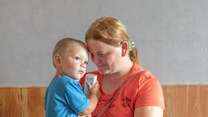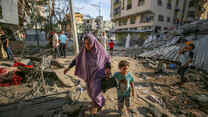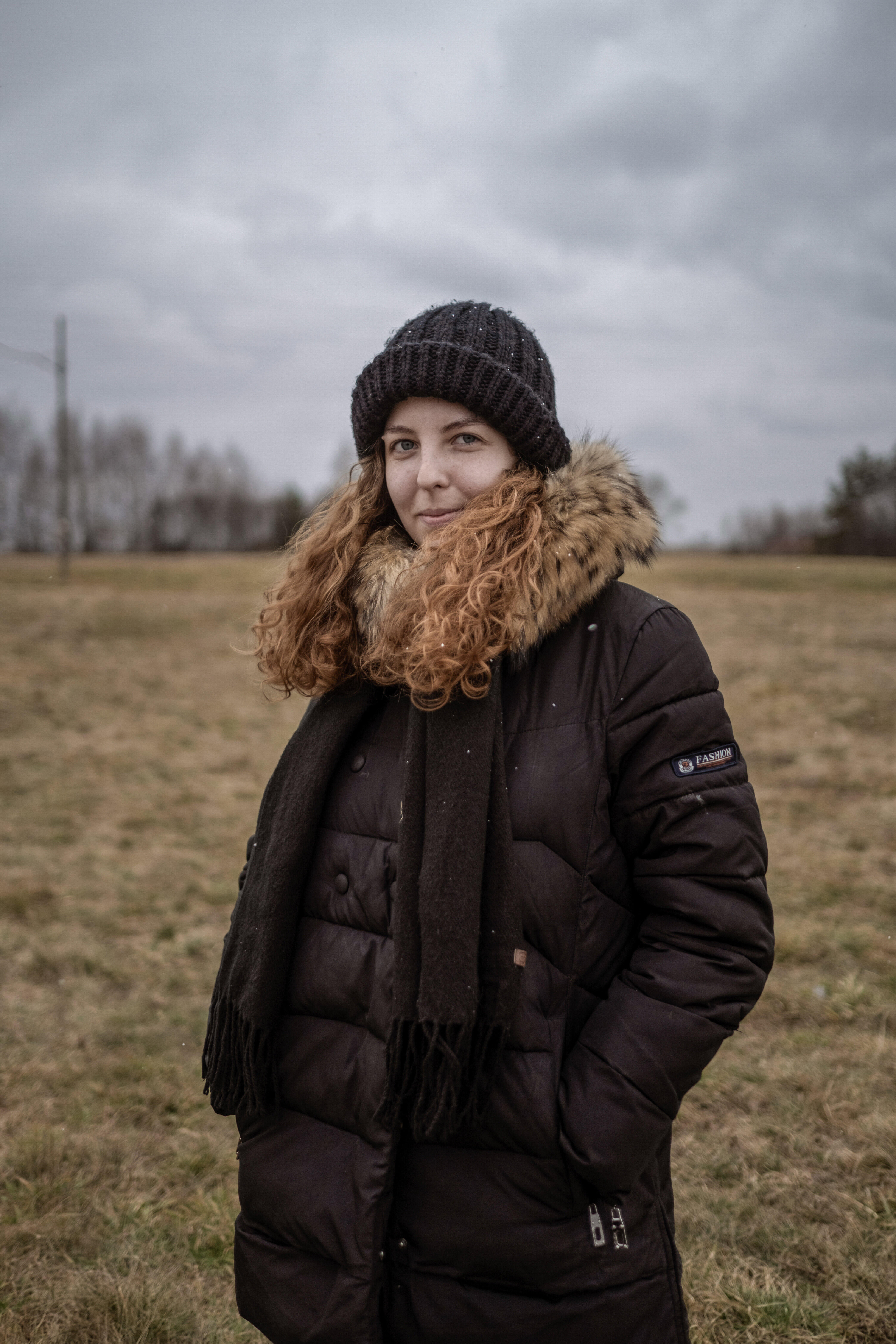As the war in Ukraine shows no signs of slowing, over 6 million refugees from Ukraine have fled to other European countries, including its neighboring Poland. Most of the refugees are women and children, who are particularly vulnerable in times of crisis.
When the war in Ukraine escalated on February 24, 2022, Polish nonprofits, businesses and government institutions quickly mobilized to support refugees crossing into Poland.
As the fighting in Ukraine persists, refugees continue to arrive in Poland in need of vital assistance. But those who have spent the past years in Poland also increasingly need integration support and protection.
Although Ukrainian refugees who have registered for temporary protection in Poland were initially met with an unprecedented welcome, the increasing fatigue among the host community, rising inflation and economic shifts have presented new challenges. Recent amendments to Polish law reduced the assistance provided to the nearly 1 million Ukrainian refugees in the country, cutting financial aid for newly arrived families and support for people hosting refugees.
The IRC warned that due to socioeconomic pressures, some refugees may feel compelled to return to Ukraine before it's safe to do so. Therefore, Poland and other host states must strengthen their protection and integration systems, while the international community and organizations like the International Rescue Committee (IRC) deliver support.
The armed conflict in Ukraine is causing grave harm to millions of families who are trapped by the violence or seeking safety in neighboring states. Both Ukrainian refugees who are arriving in Poland and those who have resettled in the country need continuous assistance, including trauma counseling, livelihood and housing support.
Men of military age are not allowed to leave Ukraine, which means that many women and children forced to flee the country are traveling alone, or accompanied by elderly family members who require special care and attention.
The humanitarian needs will outlast the conflict in Ukraine. While the situation at the border has stabilized and fewer people are crossing into Poland, refugees who arrive now have been exposed to the war for much longer and are visibly more traumatized. They generally have fewer resources to start anew. Working hand in hand with local organizations in Poland, the IRC responds to the most pressing needs of the refugee population and fosters inclusion by supporting:
- Cash and basic needs: The IRC delivers direct cash assistance to people in need to ensure families can buy food, medicine, clothing and other essentials.
- Livelihoods: We provide language classes, legal assistance, job matching and services to support refugees in finding stable employment.
- Access to information and legal aid: We work with partners to support, strengthen and provide initiatives that deliver critical information to people who have fled Ukraine.
- Safe spaces: The IRC provides Safe Healing and Learning spaces to children with refugee backgrounds. We also work with local organizations to support women affected by the war in Ukraine through a safe haven designed for survivors of gender-based violence. The shelter provides women with a safe living space, employment opportunities, psychological care and support in adapting to life in a new country.
- Education: We support intercultural assistants and teachers who help young Ukrainian refugees continue their education in Poland.
Our work in Ukraine
The IRC is also responding inside Ukraine with our Ukrainian partners, providing protection and safe spaces for women and children, cash, legal assistance, health support and supplying essential items to families living close to the frontlines.
Our work across Europe
Founded in 1933 to assist people suffering under the Nazi regime, the IRC has a long history of providing humanitarian assistance in Europe. That commitment continues in the 21st century: In 2015, we launched an emergency response in Greece and relaunched operations in Serbia. Since then, the IRC has also been providing support to refugees and asylum seekers in Germany and Italy. In 2021, we also started providing integration support to refugees and the local communities where they have resettled in the UK. Our Ukraine response, launched in 2022, spans across a number of countries in Central and Eastern Europe.
European states like Poland have shown an important commitment to welcoming people in need of protection, and the IRC hopes this will translate into sustained support for refugees everywhere.
At the same time, civilians still in Ukraine must be protected and Ukrainian refugees empowered to make informed decisions about their future. Along with sustained humanitarian aid and integration support, ending violence against civilians is among the most significant steps to allow Ukrainians to rebuild their lives.
Donate to the IRC. Your gift will help us provide food, medical care and emergency support services to families whose lives are shattered by conflict in countries like Ukraine, Afghanistan, Syria and Yemen.





